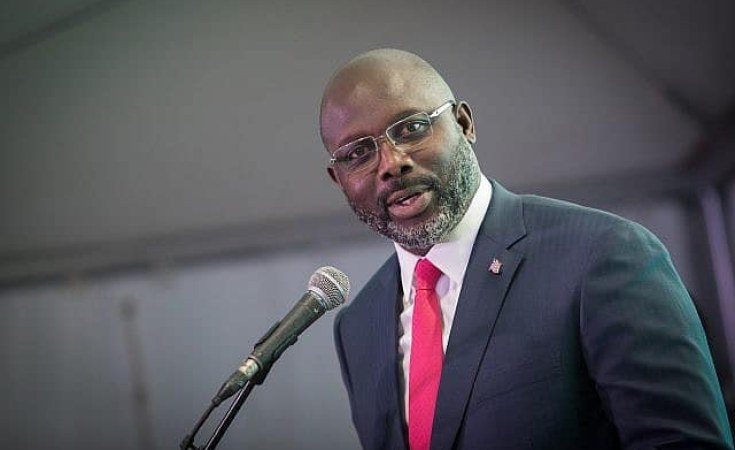President George Weah's concession call to President-elect Joseph Boakai a few days shy of the official election announcement is worth celebrating. Here's why:
To fully appreciate President Weah's gesture, one must understand Liberia's political history. Liberia has a troubled political past, from the dominance of the True Whig Party regime, including the EJ Roye saga, the 1927 rigged elections of CDB King's third term, to the 27-year-long rule of President Tubman, marred by systemic intimidation of political opponents, and more.
This moment also recalls the struggles of those who fought for social justice, democracy, and political pluralism in the past. The Progressives, for instance, actively pressured the political status quo in the late 1970s, paving the way for multiparty democracy, freedom of expression, and free elections through advocacy, public demonstrations, and civil disobedience.
Members of the Progressives included Liberians from academia, students, activists, journalists, market women, etc.
For the record, President Weah's governance records were marred by controversies, with allegations from many critics of corruption, misrule, breakdown of state institutions, etc. Scores of his followers, particularly the youth, felt disillusioned when his governance policies did not immediately impact their lives. However, he made a major shift by adhering to the principles of democracy.
Liberia's True Whig Party dominated politics from 1878 up to 1980 when it was overthrown in a coup d'état by noncommissioned officers led by Master Sergeant Samuel K. Doe. Although opposition parties were not formally outlawed, Liberia was a de facto one-party state under the True Whig Party rule, and opposition politicians were subjected to various forms of intimidation and harassment.
The military takeover of 1980 through a coup d'état ushered in one of the darkest periods of violence and intimidation in Liberia's political history. The military, citing rampant corruption, abuse of power, nepotism, etc., led a coup against the government of President William R. Tolbert Jr. President Tolbert was killed, along with members of his household, and several members of his cabinet were arrested. Within 10 days, thirteen (13) of them were hurriedly tried by a military tribunal and sentenced to death by firing squad.
The military formed a government, abolished free speech, and led the country through a dark tunnel until elections were organized in 1985 with Military Head of State Samuel Doe as a candidate for his newly formed NDPL {National Democratic Party of Liberia}.
The 1985 elections were widely believed to have been rigged, with allegations of burnt ballot boxes, systemic stuffing of ballots, coercion of election officers, and the deployment of cronies loyal to the military to count the ballots. The military head of state was declared the winner, attempting to legitimize his transition from a military to a civilian leader. About one month after the elections, General Thomas Quiwonkpa, one of the noncommissioned officers who staged the 1980 coup, returned from exile in the US and staged a post-election coup against his former comrade. The coup failed, and General Quiwonkpa was arrested and killed a few days later. The nation went into hibernation, with student protests crushed, opposition politicians killed or chased into exile, and the struggle for political pluralism became elusive.
By conceding defeat a day before the official announcement of election results in Liberia, President George Weah has entered the uncommon realm of politics in Africa's democracy. Elections remain a source of conflict across Africa, with many strongmen holding onto power for decades -- Robert Mugabe, Paul Biya, Blaise Compaoré, Omar Bongo, Gnassingbé Eyadéma, etc. Even once-respected African politicians failed the democracy test, with Robert Mugabe holding onto power until a coup from his inner circle; former Ivorian opposition leader Laurent Gbagbo; former Guinean opposition leader and President Professor Alpha Condé was arrested by the military after forcing a constitutional amendment to hold onto power. Also, current Ivorian President Alassane Ouattara, made a last-minute constitutional amendment to run for a third term after agreeing to step down. Elections sit at the fulcrum of Africa's national security, and many leaders have clung to power, leading to a pattern of coup d'états and military takeovers.
According to the Electoral Institute for Sustainable Democracy in Africa (EISA), the African Election calendar accounts for eighteen (18) Presidential elections across Africa in 2024. What can Africa learn from Liberia to avoid conflicts and violence? Liberia's history of violence, civil war, multiple failed peace talks, and numerous warring factions forming interim governments at different times, which makes this gesture worth mentioning.
By placing that call, Liberia has set an example of four consecutive peaceful Presidential elections since 2005 and two (2) Presidential transfers of power. For a post-conflict nation nursing its wounds from the ashes of war, that's commendable. For a region plagued with constitutional amendments for third terms and coup d'états, it is a moment of reflection and joy. Liberia's democracy is not out of the woods, but the gains are worth celebrating. In response to post-election interview questions, NEC commissioners Dukuly and Gaye reflected on the journey towards democracy and the significance of this election. The people get the loudest applause! Aluta!
The Author
Lekpele M. Nyamalon is a Liberian writer and poet and Author of Scary Dreams - an anthology of the Liberian Civil War. He can be reached at nyamalon23@gmail.com .


